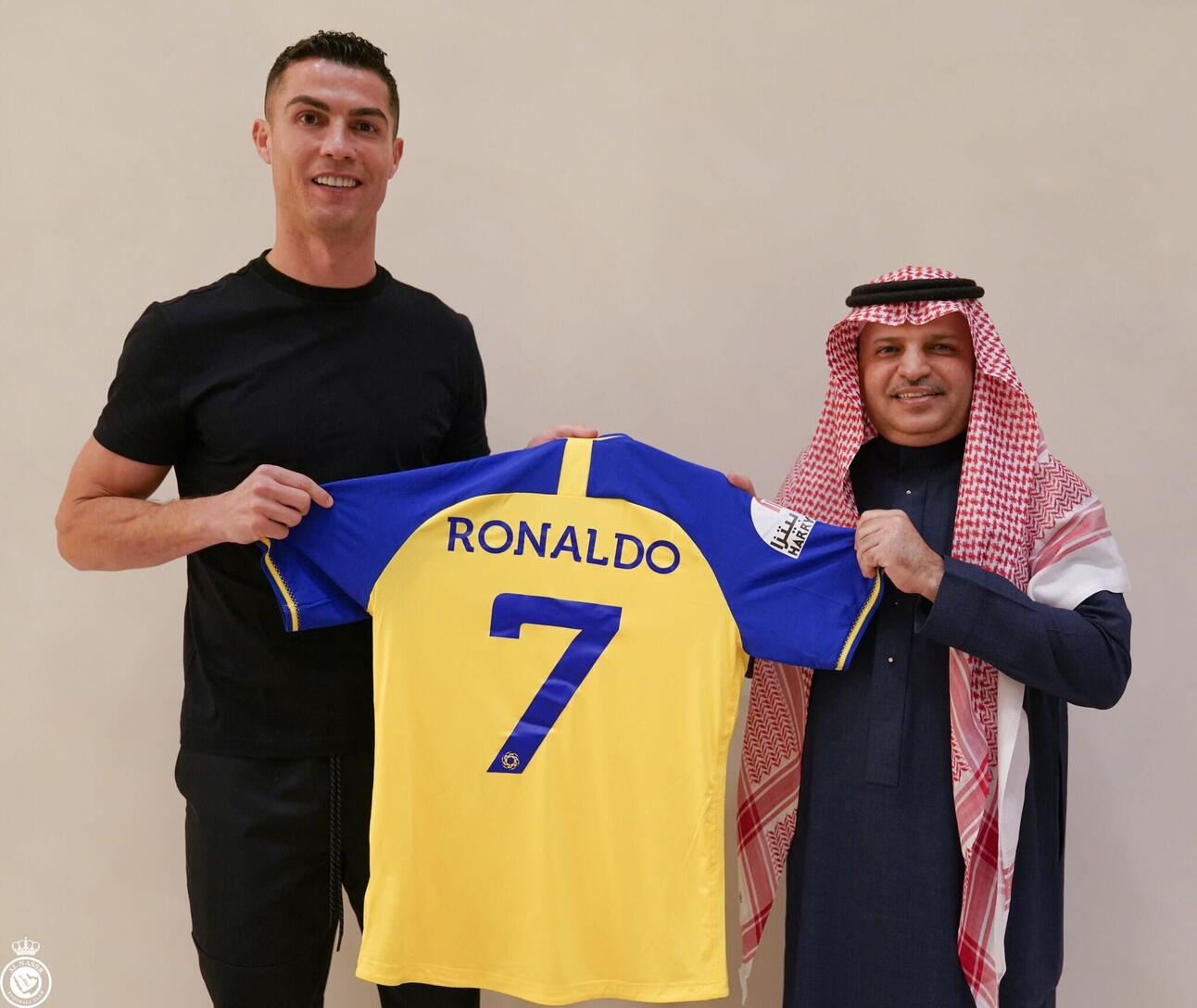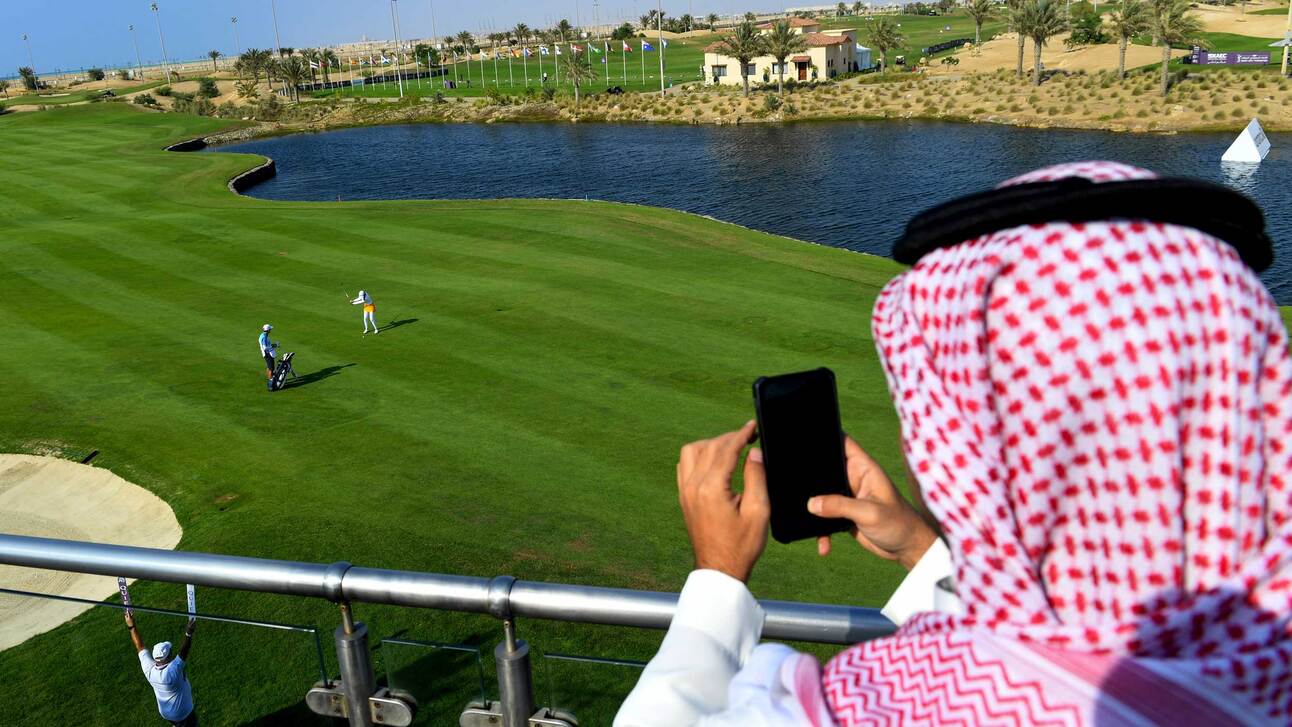Oil Money Goes Global
Share
Oil Money Goes Global |
|
|
|
|
|
|
|
|
Intro |
|
|
When you imagine a Saudi businessman, you’re probably not picturing a sports owner or indoor ski resort operator. You’re probably picturing an oil tycoon - the dominance of oil money in the Kingdom for the past century is no secret. |
|
|
But now, Saudi Arabia has a strong grip on both golf in the United States and professional soccer in Europe. |
|
|
At first, it was hard to take Saudi’s sports ambitions seriously. The country was losing out to even its neighbors the United Arab Emirates and Qatar, and Saudi Arabia was left hosting sporadic tennis exhibitions and obscure racing events. |
|
|
But the Kingdom didn’t give up, even despite playing second fiddle in its own region, and the future appeared to belong elsewhere. |
|
|
The past few years have seen strong momentum for the Saudi’s sports ambitions. Since their acquisition of the Premier League team Newcastle United in 2021, the Saudi Public Investment Fund (PIF) has set its sights on attracting the brightest stars in the game to the desert. |
|
|
When Saudi's $600 billion sovereign wealth fund began investing in sports, many thought it was 'sportswashing'. But Saudi insists it's not true, and says it's part of an effort to diversify its economy and, one day, set its sights on hosting the Olympics. |
|
|
And even today, the region seems fixated on international sports. On Friday June 23rd, it was announced that the Qatari sovereign wealth fund bought a 5% stake in Monumental Sports, the parent company of the NBA's Washington Wizards and NHL's Washington Capitals for $4.05 billion. When the deal is finalized, it will be the first of its type since the NBA began allowing sovereign-wealth funds to invest last year. |
|
|
Is Saudi Arabia’s sporting ambition merely a way for the country to improve its controversial image, or is there actual substance to the country going all-in and investing in sports? |
|
Saudi Economy |
|
|
For the past century, the oil industry has taken control of the country’s economy, constituting 80% of export income and 40% of GDP. |
|
|
Saudi’s GDP grew from $15B in 1973 to $184B in 1984, creating not only a massive influx of wealth in the country, but also a strong dependence on oil revenue. |
|
|
And now, two converging trends are on a collision course. Saudi Arabia's oil reserves are depleting rapidly, with only 60 years left at the current rate of global consumption. And global demand for oil is expected to decrease significantly by 2040, if not earlier. |
|
|
But at the same time, Saudi Arabia’s population is getting younger and younger. 70% of the country’s population is under the age of 35, and with oil profits starting to dwindle, the country is scrambling to diversify its economy. |
|
|
It’s not exactly clear whether it’s a Saudi or Emirian who said it, but an uncredited businessman once said. "My grandfather rode to work on a donkey. Then my father drove to work in a Mercedes. I now drive to work in a Lamborghini. But my son? He will probably ride to work on a donkey." |
|
|
There’s no secret - the Saudis are worried about running out of money. |
|
|
|
|
|
|
Vision 2030 |
|
|
It turns out the younger generations started to worry about the country’s economic future, too. And thanks to some new blood in office and the help of management consultants, Saudi sought to diversify its economy in a variety of out-of-the-box ways, including through sports. |
|
|
It has long been theorized that the Kingdom of Saudi Arabia is one of McKinsey and Boston Consulting Group’s biggest clients, if not their biggest. And with the help of some of America’s top-dog management consultants, the Kingdom unveiled a blueplan called ‘Vision 2030,’ a $4 trillion investment aimed to wean the country off its oil revenues. |
|
|
Aspects of Vision 2030 include building an 'eco-city' called Neom (which would be 33x larger than NYC), a ski resort in the middle of the desert called Trojena, and constructing the largest buildings in the world. |
|
|
Mohammed bin Salman took the reins of the country in 2017 and wanted to expand Saudi Arabia's global influence. And the first major event of Saudi’s sporting revolution arrived in 2019 when the country hosted the epic heavyweight title fight between Andy Ruiz Jr. and Anthony Joshua, with a staggering purse of $60 million. |
|
|
Soon after, Saudi Arabia decided to take a swing at golf. In 2019, the Kingdom started hosting a European Tour tournament, and from there, PIF's ambitions only grew bigger: they wanted their very own golf tour. |
|
|
The $409 million takeover of Newcastle United Football Club, led by PIF, marked a turning point in Saudi Arabia's strategy. It was no longer sufficient to simply bring global sports events to the Kingdom's wealth; now, they sought to use that wealth to leave a lasting imprint on foreign soil. |
|
Soccer (It’s Called Fútbol) |
|
|
Saudi's population is both young and football-obsessed. Since Ronaldo joined, attendance at Al Nassr games have skyrocketed 143%, a trend expected to take the Saudi Pro League by storm. |
|
|
And Saudi’s willing to pay the price. Ronaldo’s $200 million/yearly deal is both unprecedented and hefty. |
|
|
The reasons for Saudi's soccer ambitions? Global publicity is one, but so is the need for the country to diversify its revenue streams. The Saudis are hoping to triple the league's market value to $2.1 billion within a year. And so far? It's working. Al Nassr has been able to raise ticket prices upwards of 10x alone this year. |
|
|
Another interesting tid-bit? Not only is Saudi’s population increasingly young, but not in the best shape. 60% of the country is either overweight or obese, and there’s hope that increasing soccer’s popularity could improve the population’s fitness. |
|
|
In 2021, Saudi Arabia made its first significant investment in soccer by acquiring Newcastle United. They supported a British businesswoman by acquiring an 80% share of the club. Additionally, the governor of the sovereign wealth fund, who also serves as the Chairman of Aramco, took on the role of Chairman of Newcastle. |
|
|
The Saudi investors have begun spending lavishly, indicating their ambition to build a competitive team. Newcastle's spending in the transfer market has increased by 234% compared to the previous season, reaching $150 million. |
|
|
|
Investing Outlook |
|
|
The Saudi private investment fund is essentially the Saudi royal family's sovereign wealth fund. This provides a unique investment lens - this is not merely a local billionaire owning a local sports team - it’s national wealth that’s being funneled into global sports. |
|
|
But is Saudi aiming to turn a profit, or are they dipping their toes into sports for 'soft power' (reforming their global image, placating younger generations, etc.)? It's hard to say, but ultimately, sports return is like any other investment. If you sell enough in media rights, sponsorships, and tickets, you can turn a profit. |
|
|
It’s hard to say for sure. The Saudi’s insist the Public Investment Fund is a separate entity from the state, and that all investments are independent of politics. While many find that difficult to believe, there’s no secret that the PIF is one of the savviest investment funds in the world. |
|
|
In early 2020, PIF went all-in on stocks when global markets declined. It was a risky move and the PIF even lacked liquid assets to embark on an international stock-buying spree. |
|
|
But the PIF deployed $35 billion, which soon turned to $49 billion when global markets rallied. And with the kingdom benefiting from increased oil prices and having ample financial resources, it aims to grow the PIF into an enormous entity worth $2 trillion by 2030. |
|
|
Under the leadership of Prince Mohammed, the Public Investment Fund (PIF) has reported a 12% annual return from September 2017 until the end of 2021. This 12% return surpasses the average of 9% among sovereign-wealth funds. In comparison, the PIF had disclosed a 3% annual return from 2014 to 2016. |
|
|
And according to the PIF, the fund's efforts have resulted in the creation of over 500,000 jobs and the establishment of 66 new companies. |
|
|
It’s not just sports. The PIF has invested $45 billion in SoftBank, $20 billion in Blackstone, as well as many other prominent companies like JPMorgan and Apple. And Elon Musk's legendary Tesla take-private tweet for $420 was allegedly sparked by the Saudi sovereign wealth fund. |
|
|
|
|
|
|
Conclusion |
|
|
It’s tough to say exactly why the PIF is investing in professional sports. Equally harder to say - to what extent the PIF is a political arm rather than the independent investment pool the Saudi royal family insists it is. |
|
|
That said, there’s no doubt investing in sports can both provide monetary returns as well as the ability for Saudi Arabia to improve its image and diversify its economy. |
|
|
If you look at Vision 2030 and the skyscrapers and cities Saudi Arabia want to build, there’s no secret they’re dreaming big. And it’s been speculated that the ultimate goal is for Saudi to host an Olympics. |
|
|
Sports teams have typically only gone up exponentially in value. Take the Phoenix Suns, which sold for $401 million in 2004 and again at $4 billion this year. So the Saudis could be onto something - especially if they aim to grow TV rights and other various television streams. |
|
|
And, love or hate the Saudis, you gotta give them some credit. They’re using PIF to change the country’s economic future, and massive investments in sports, EV makers, and even Blackstone could be a good way to get there. |



